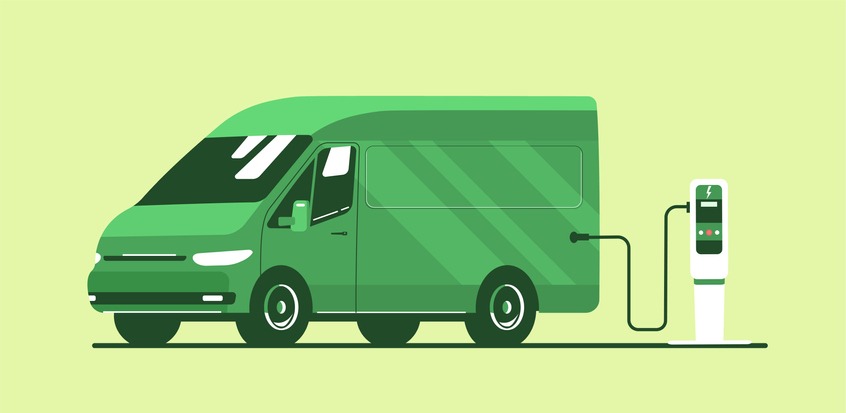
EVs are a big investment for dealers, but they come with some significant financial incentives
In a world where fuel prices and availability remain uncertain, a shift towards more dealers using electric vans has emerged. Battery and hybrid electric vehicles (EVs) now account for more than half of all new vehicle sales. This transformation offers significant advantages, both in terms of the environment and financially.
The benefits of electric delivery vehicles
Electric vans come with a host of benefits that make them increasingly attractive to businesses:
- Increased efficiency: Electric vehicles are renowned for their energy efficiency. They can cover more miles per unit of energy compared to traditional internal combustion engine vehicles.
- Lower running costs: Electric vans have lower operational costs due to the significantly cheaper cost of electricity compared to fossil fuels like petrol or diesel.
- Reduced maintenance costs: Electric vans have fewer moving parts than their gasoline or diesel counterparts, resulting in lower maintenance and repair expenses.
- Environmental compliance: Fully electric vehicles are often exempt from congestion charges in cities like London and are compliant with Ultra-Low Emissions Zones (ULEZ).
Grants for electric delivery vehicles
Even before making a purchase, businesses can tap into government incentives to reduce the cost of electric vans. These include the plug-in vehicle grant and the workplace charging scheme.
The plug-in vehicle grant applies to vehicles emitting 75g/km of CO2 or less and capable of zero-emissions travel. For smaller vans, the grant can cover up to 35% of the purchase price, up to a maximum of £2,500, while larger vans can receive up to £5,000 in grant funds. It’s essential to check if your chosen vehicle qualifies for the grant.
The workplace charging scheme is a voucher-based program aimed at supporting the installation of electric vehicle chargers at workplaces. This scheme covers up to 75% of the installation cost, with a maximum grant of £350 for each socket, for up to 40 sockets.
While the initial cost of electric vans may be higher than their fossil fuel counterparts, the long-term financial benefits are substantial. Electric vans typically cost only 2-3p per mile to operate, compared to around 10p per mile for conventional diesel vans. Furthermore, their reduced maintenance requirements contribute to cost savings over time.
Tap into tax benefits
Several tax-related advantages accompany the ownership of electric vans. For example:
- Road tax exemption: Fully electric vans producing 0g/km of CO2 are exempt from road tax, incentivizing environmentally friendly vehicle choices.
- Capital allowances: As of April 2021, businesses can claim 100% of the cost of new and unused zero-emissions vans against taxable profits in the first year of purchase, resulting in significant tax savings.
- Tax-free mileage: Companies can reimburse employees for business use of their own electric cars or vans at a tax-free rate of 45p per mile for the first 10,000 miles driven in the first year, with additional miles reimbursed at 25p per mile.
- Benefit-in-kind (BIK): BIK tax for electric vans was recently reduced to zero, aligning with electric cars and encouraging the adoption of electric vehicles for business use.
Making the electric switch
Transitioning to electric vans is a big investment, but it offers substantial cost savings and tax benefits for businesses. However, given the evolving regulations and incentives surrounding electric vehicles, it’s essential to explore the grants and tax advantages applicable to your specific circumstances. Embracing electric vans can not only lead to financial gains but also contribute to a more sustainable and eco-friendly future. If you’re considering this transition, be sure to explore the available resources and consult with experts to make an informed decision.


Be the first to comment